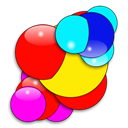DIET Alternatives

DIET
Among the existing approaches for grid middleware, a simple, powerful and flexible one consists in using the servers available in different administrative domains through the traditional client-server or Remote Procedure Call (RPC) paradigms. Network-Enabled Servers (NES) implement this model, also called Grid-RPC. Clients submit computation requests to a scheduler whose goal is to find a server available on the resources.
The aim of the DIET project is to develop a set of tools to build computational servers. Huge problems can now be computed over the Internet thanks to Grid Computing Environments – like Globus or Legion – or through Cloud solutions – such as Amazon EC2. Because most of current applications are numerical, the use of libraries like BLAS, LAPACK, ScaLAPACK or PETSc is mandatory. The integration of such libraries in high level applications using languages like Fortran or C is far from being easy. Moreover, the computational power and memory needs of such applications may of course not be available on every workstation. Thus, the RPC seems to be a good candidate to build Problem Solving Environments on the Grid.
The DIET project is focused on the development of scalable middleware with initial efforts focused on distributing the scheduling problem across multiple agents. DIET consists of a set of elements that can be used together to build applications using the Grid-RPC paradigm. This middleware is able to find an appropriate server according to the information given in the client’s request (e.g. problem to be solved, size of the data involved), the performance of the target platform (e.g. server load, available memory, communication performance) and the local availability of data stored during previous computations. The scheduler is distributed using several collaborating hierarchies connected either statically or dynamically (in a peer-2-peer fashion). Data management is provided to allow persistent data to stay within the system for future reuse.
Best DIET Alternatives
Are you looking for alternatives to DIET? Please see our top picks. In this article, we provide the list of some DIET alternatives that will work on Windows and other platforms.

Folding@home
FreeMacWindowsLinuxDockerCollaborative effort using a network of individual computers to combat diseases through data-crunching research.
DIET Reviews
Add your reviews & share your experience when using DIET to the world. Your opinion will be useful to others who are looking for the best DIET alternatives.
Table of Contents